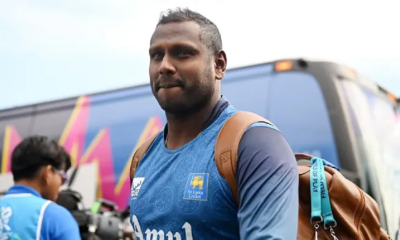News
Australia’s importance as an influential Middle Power emphasized at LKI Roundtable Consultation
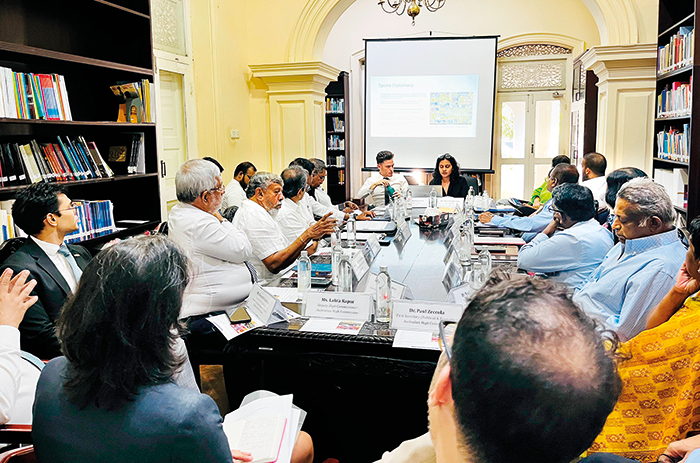
The Lakshman Kadirgamar Institute of International Relations and Strategic Studies (LKI) hosted a roundtable discussion on 1 February 2024 on the theme “Strengthening Engagement in Sri Lanka – Australia Relations’ ‘. LKI’s Roundtable series provides a platform for experts on the respective subject to engage in a candid discussion and support research output that informs policymakers and other relevant parties.
Opening the ‘round table’ held under Chatham House Rules, Ambassador Ravinatha Aryasinha emphasised that Australia was an important and influential Middle Power with whom Sri Lanka has had a longstanding relationship. He emphasised the need for Sri Lanka foreign policy to engage more with such relationships, even as it remains pre-occupied with the complexities emanating from the major power rivalries in the region.
Building on presentations by the LKI Research team, comprising Ms. Ishara Tilakaratna, an undergraduate student at the University of Melbourne, Australia, who concluded a four-month internship, and Michael Iveson, Research Fellow (Global Economy), the discussion was contributed to by former Sri Lankan High Commissioners to Australia, and representatives of the Ministry of Foreign Affairs, the Australian High Commission in Colombo, Sri Lanka’s Export Development Board, Board of Investment, Port City Colombo, the Sri Lanka-Australia-New Zealand Business Council of the Ceylon Chamber of Commerce, academic, defence, sports and civil society experts.
In the discussion on the politico-strategic dimension between Australia and Sri Lanka, attention was drawn to the longstanding political relationship and the mutual support on pressing issues. Experts highlighted proactive and candid two-way communication as key to effective cooperation with Australia. Notable cooperation included Sri Lanka’s assistance to Australia in curbing human smuggling and Australia’s nuanced approach to Sri Lanka’s separatist conflict and in its aftermath.
Ongoing political engagement continues to support Sri Lanka’s maritime and cyber security, with collaborative projects like the coastal forecast system funded by Australia. Sri Lanka’s role as Chair of the Indian Ocean Rim Association offers opportunities for increased engagement, particularly in hydrography and oceanography. Stakeholders also praised Australian efforts to promote good governance and build public sector capacity in Sri Lanka through knowledge transfer and local empowerment. Experts emphasised the importance of sharing best practices in governance for structural reforms and illegal asset recovery.
The socio-cultural dimension of the relationship between Australia and Sri Lanka focussed mainly on engaging the Sri Lankan diaspora in Australia. It was noted that concerns among the diaspora include delays in dual nationality processing and transparency in financial contributions. It was noted that following the establishment of the Office of Overseas Sri Lankan Secretariat (OOSLA) in the Presidential Secretariat, concerted action was underway to address these concerns and to more proactively engage with the diaspora across the globe.
While Australia’s support to Sri Lanka Cricket was lauded, disappointment was expressed over not taking advantage of similar support for other sports, despite signing a Memorandum of Understanding on sports cooperation in late 2023. In the field of education, it was noted that while nearly 30 Australian affiliated institutes operated in Sri Lanka, granting University status to some who qualify to conduct full degree programmes would be more cost effective for Sri Lankans and also help Sri Lanka establish itself as an educational hub in the region.
The economic dimension of the Australia-Sri Lanka relationship focussed on trade, investment, tourism, and development assistance. Sri Lanka’s exports were modest to Australia, as Sri Lanka’s export basket is matched by that of China, Indonesia and Vietnam who export to Australia with a geographical and cost advantage under free trade agreements and other institutional arrangements.
Noting the historical importance of Australian investment in Sri Lanka during the 1990s, it was observed that an Australian-branded university will commence operations shortly in the Port City Colombo, which is an international multi-services Special Economic Zone (SEZ). Australia was also highlighted as a successful source of tourism to Sri Lanka, but questions were raised whether the potential of this sector has been fully exploited, given the influence the large Sri Lankan diaspora could have in encouraging Australians to travel to Sri Lanka.
Latest News
Landslide Early Warnings issued to the districts of Kandy and Nuwara Eliya extended
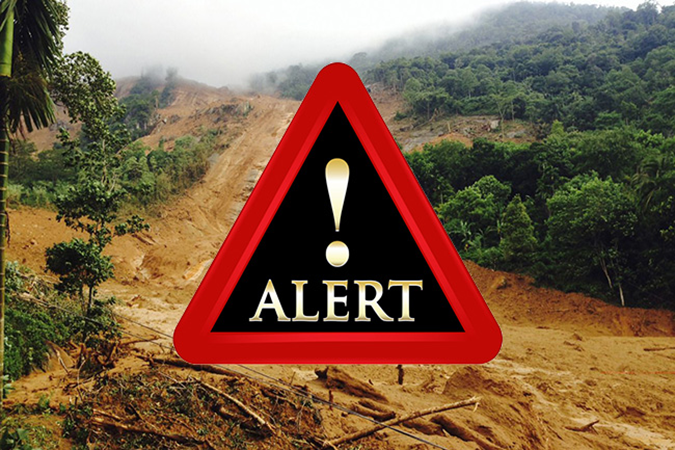
The landslide early warnings issued to the Districts of Kandy and Nuwara Eliya by the Landslide Early Warning Center of the National Building Research Organisation have been extended till 0600 hrs on 15th February 2026.
Accordingly,
The Level II [AMBER] warnings issued to the Divisional Secretaries Divisions and surrounding areas of Walapane and Nildandahinna in the Nuwar Eliya district and the
Level I [YELLOW] warning issued to the Divisional Secretaries Divisions and surrounding areas of Pathadumbara in the Kandy district have been extended.
Latest News
Advisory for Severe Lightning issued to the Western, Sabaragamuwa and Southern provinces and Badulla and Nuwara-Eliya districts
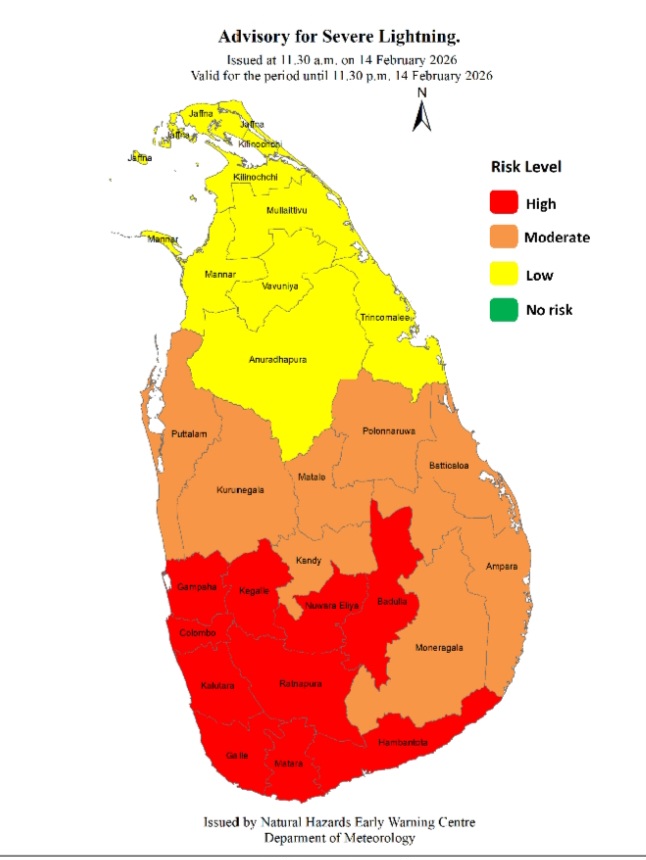
Advisory for Severe Lightning Issued by the Natural Hazards Early Warning Centre at 11.30 a.m. 14 February 2026 valid for the period until 11.30 p.m. 14 February 2026
Thundershowers accompanied with severe lightning are likely to occur at some places in the Western, Sabaragamuwa and Southern provinces and in Badulla and Nuwara-Eliya districts after 1.00 p.m. There may be temporary localized strong winds during thundershowers.
The General public is kindly requested to take adequate precautions to minimize damages caused by lightning activity.
ACTION REQUIRED:
The Department of Meteorology advises that people should:
Seek shelter, preferably indoors and never under trees.
Avoid open areas such as paddy fields, tea plantations and open water bodies during thunderstorms.
Avoid using wired telephones and connected electric appliances during thunderstorms.
Avoid using open vehicles, such as bicycles, tractors and boats etc.
Beware of fallen trees and power lines.
For emergency assistance contact the local disaster management authorities.
Latest News
Teacher recruitment examinations will be conducted in accordance with the relevant court decisions – PM

Prime Minister Dr. Harini Amarasuriya stated that the forthcoming two teacher recruitment examinations will be conducted in accordance with the relevant court decisions pertaining to the ongoing legal proceedings and further noted that, taking into consideration the requests received, steps have been taken to make a request to Court’s approval to revise the conditions of the effective date of degree completion.
The Prime Minister made these remarks while addressing a meeting held at Monaragala Royal College to brief education authorities of the Monaragala District on the new education reforms.
Under the new education reforms, Smart Boards will be provided to 132 schools in the Monaragala District as part of the program to equip secondary schools with modern technology. As a symbolic step under this initiative, Smart Boards were presented to 10 secondary schools under the Prime Minister’s patronage. This program is being implemented with the intervention of the Digital Task Force operating under the Prime Minister’s Office. It was also emphasized that a new digital policy, formulated with special attention to child protection, will be introduced in April.
As part of her visit to the Monaragala District on the 13 th of February, the Prime Minister observed the implementation of the new learning methodologies introduced for Grade One under the new education reforms. She visited Kumbukkana Sri Shanmugam Tamil Maha Vidyalaya and Maduruketiya Maha Vidyalaya in Monaragala to observe the educational activities of Grade One students.
Considering the increase of student numbers and the development of infrastructure facilities, the Prime Minister also approved a proposal submitted by the School Development Society to rename Maduruketiya Maha Vidyalaya as Monaragala Dharmaraja Maha Vidyalaya.
Teachers briefed the Prime Minister that the new education system, supported by revised workbooks and activity-based learning methods, has proven to be effective, with students participating enthusiastically.
Addressing education officials further at the meeting held at Monaragala Royal College, the Prime Minister stated:
“Although this will not provide a complete solution to the existing teacher vacancies, these examinations can offer considerable relief. According to the Court’s previous determination, the effective date of degree completion had been set as 30.06.2025. However, considering numerous requests and following the cabinet approval we have sought Court’s consent to revise this date. We will act in accordance with the decision granted.
Funds allocated for school infrastructure must be utilized transparently and in line with proper planning, and progress must be reported accordingly. We cannot move forward by dividing ourselves along national, provincial, rural, or urban lines. As education authorities, you must make swift and accurate decisions based on correct data.
Further, discussions are already underway within the Piriven Committee of the Ministry of Education to develop Piriven education and to address the issues faced by Piriven teachers.”
The event was attended by the members of the Maha Sangha, Uva Province Governor Attorney-at-Law Kapila Jayasekara, Deputy Minister of Trade and Commerce R.M. Jayawardhana, Member of Parliament Ajith Agalakada, Uva Provincial Education Secretary Nihal Gunarathne, and several officials from the education sector.
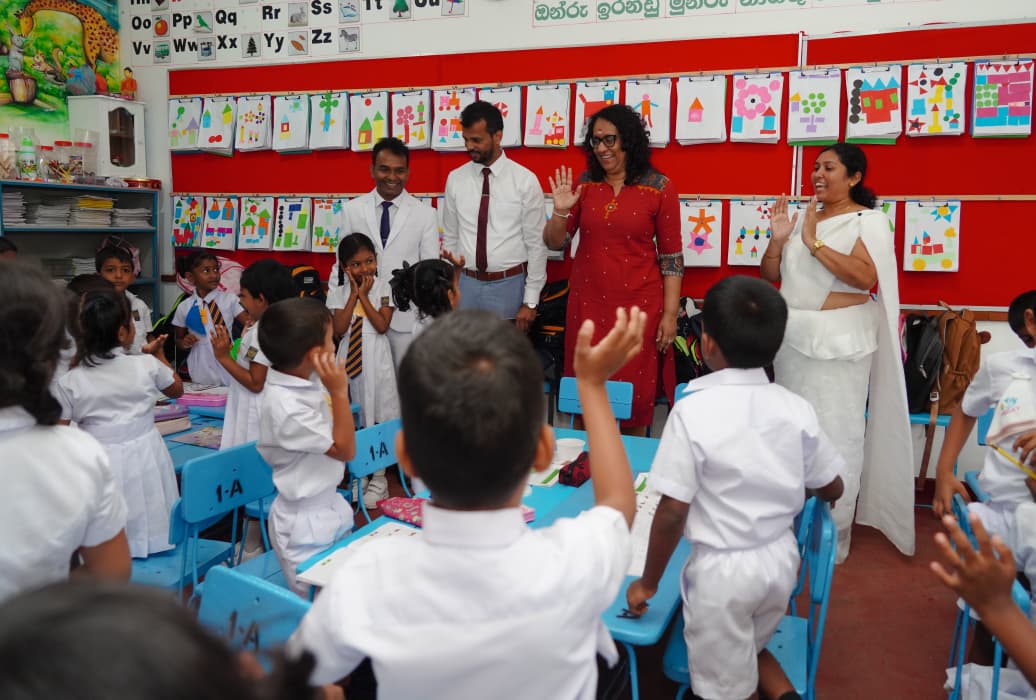
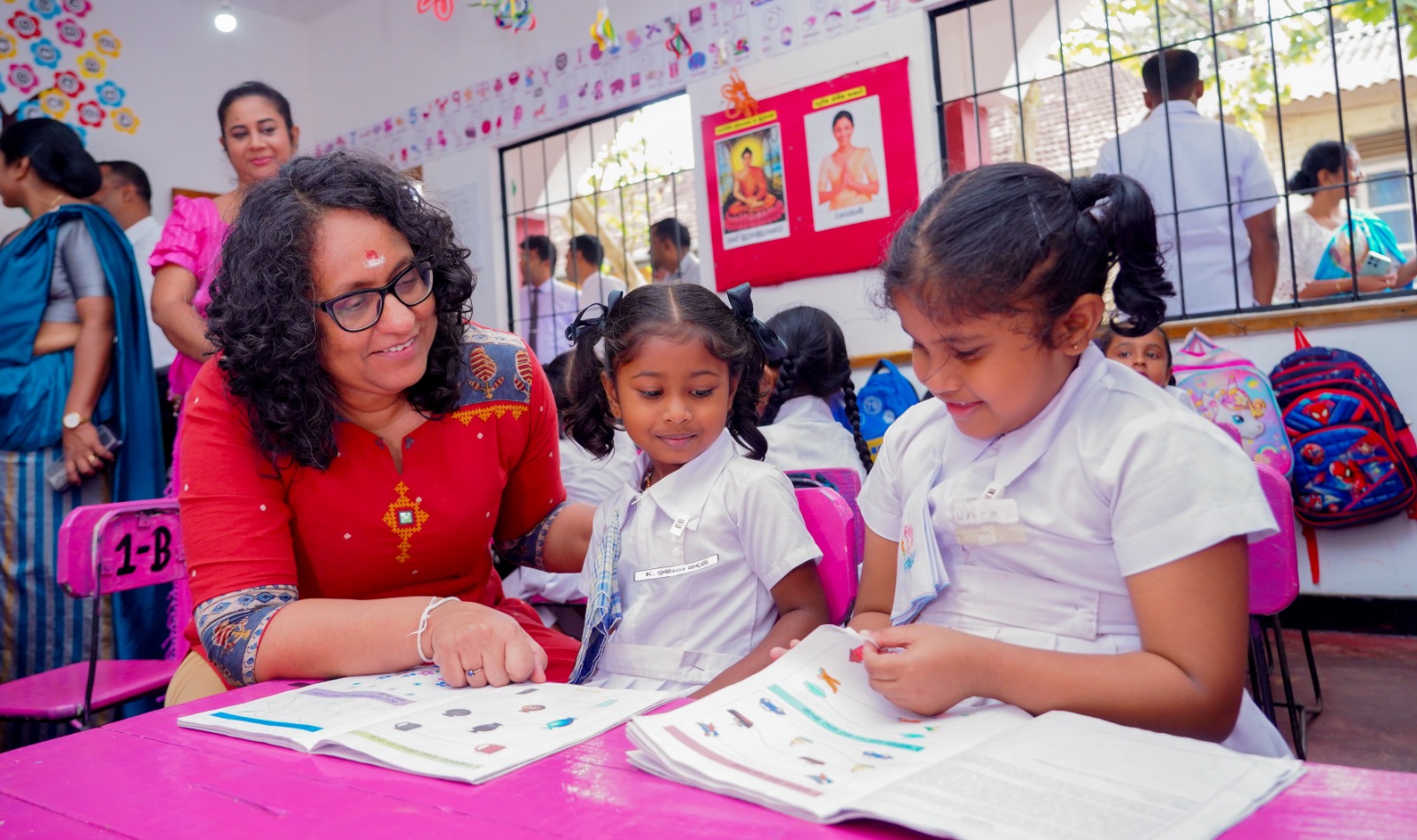

[Prime Minister’s Media Division]
-

 Features7 days ago
Features7 days agoMy experience in turning around the Merchant Bank of Sri Lanka (MBSL) – Episode 3
-

 Business7 days ago
Business7 days agoRemotely conducted Business Forum in Paris attracts reputed French companies
-

 Business7 days ago
Business7 days agoFour runs, a thousand dreams: How a small-town school bowled its way into the record books
-

 Business7 days ago
Business7 days agoComBank and Hayleys Mobility redefine sustainable mobility with flexible leasing solutions
-

 Business4 days ago
Business4 days agoAutodoc 360 relocates to reinforce commitment to premium auto care
-

 Midweek Review4 days ago
Midweek Review4 days agoA question of national pride
-

 Opinion3 days ago
Opinion3 days agoWill computers ever be intelligent?
-

 Midweek Review4 days ago
Midweek Review4 days agoTheatre and Anthropocentrism in the age of Climate Emergency




